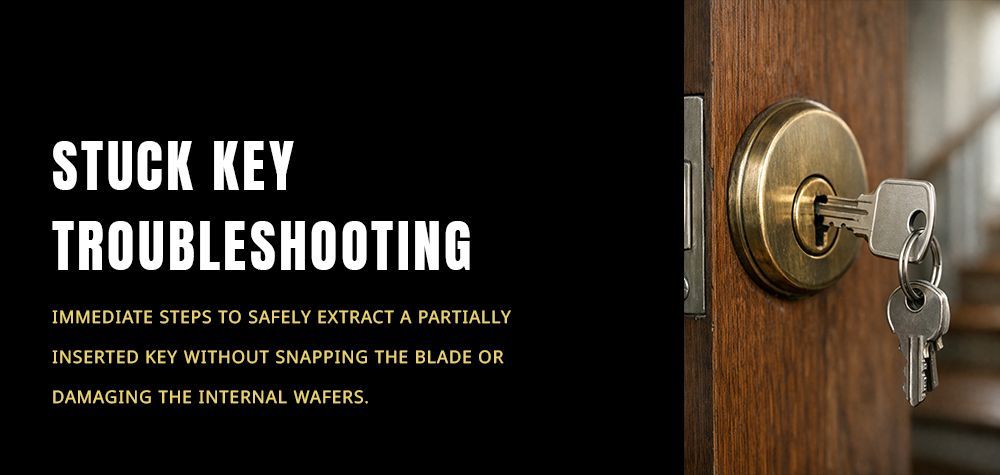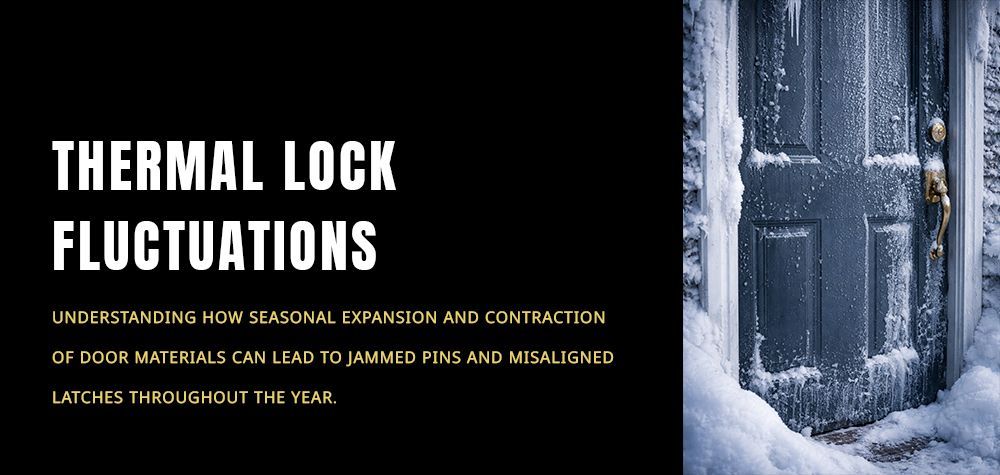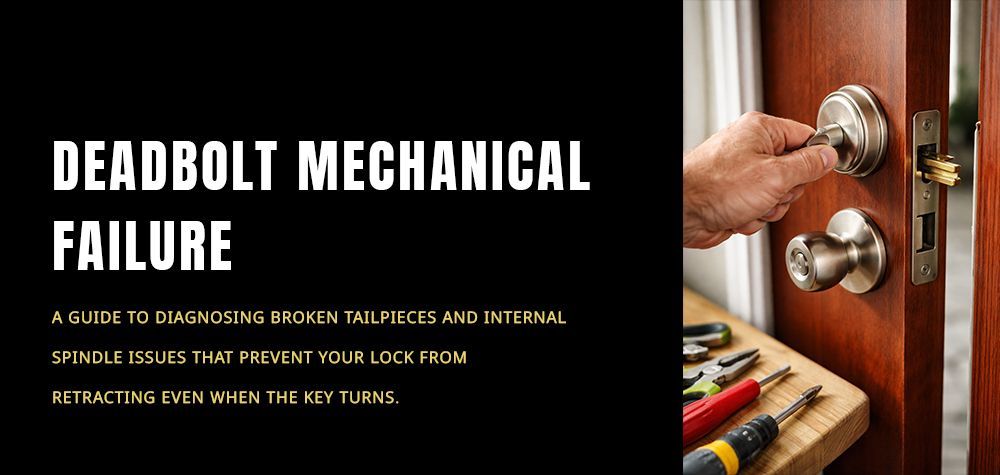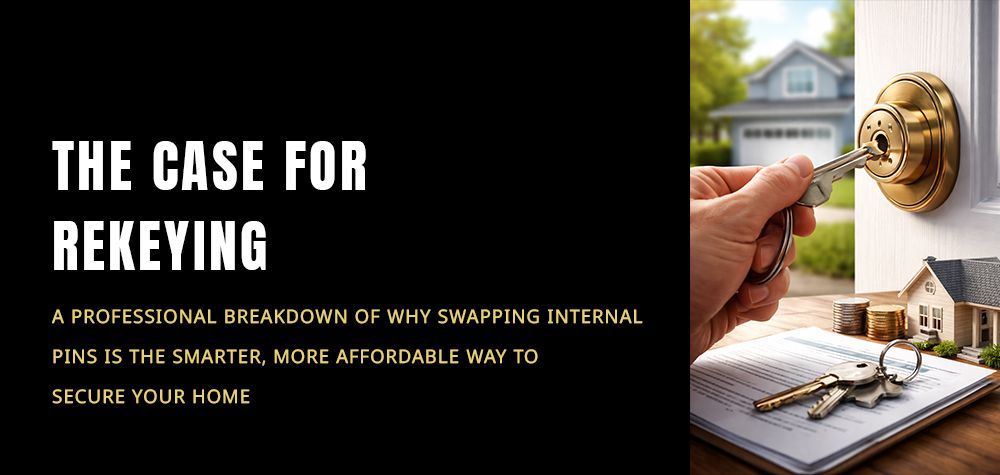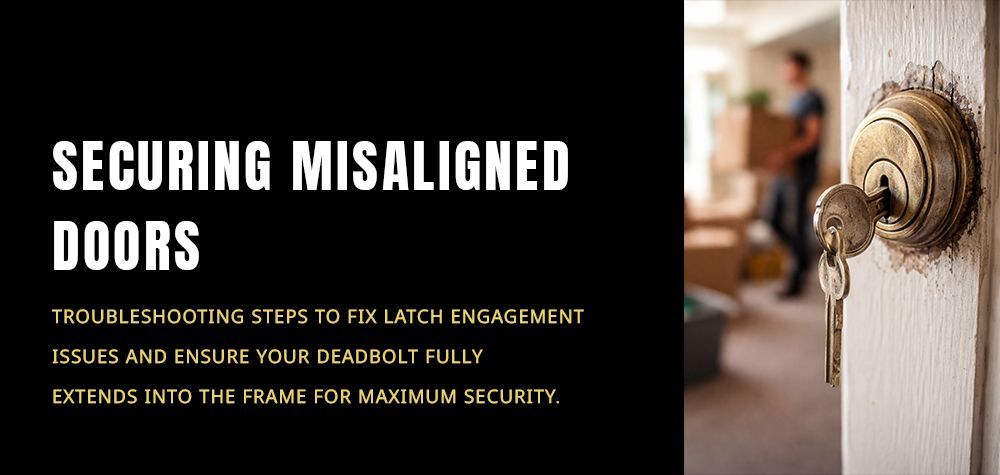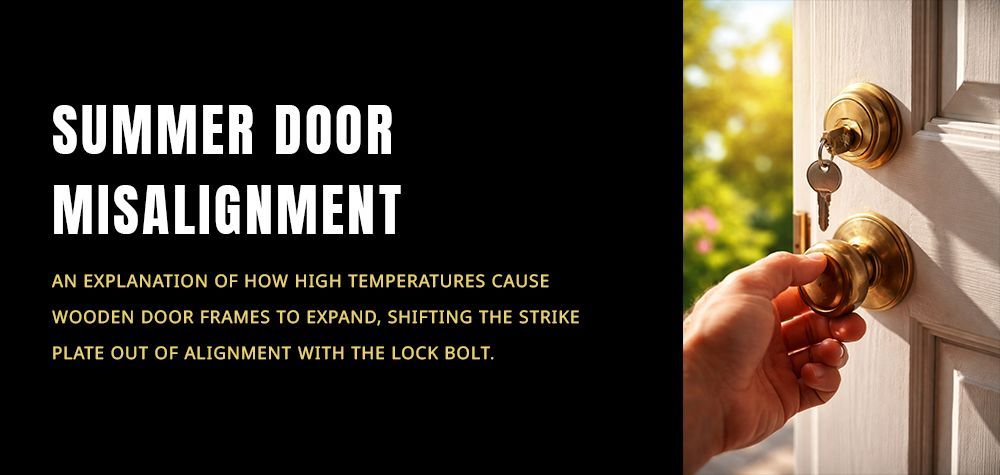The Key to Safety: 9 Signs It’s Time for You to Replace Your Door Locks

Getting ready to move into a new home?
There are a bunch of different things you should do prior to unpacking your moving van.
You should have the utilities for the home put into your name. You should also make sure that you’ve changed your mailing address. And in addition to doing those things, you should go about replacing door locks throughout the home as well.
You’ll be given a set of keys to the locks that are on the doors in your new home when you buy it. But there’s no telling who else might have keys to those locks. It’s why it makes all the sense in the world to have them replaced as soon as possible.
There are many other times when you’ll want to consider replacing door locks, too.
Here are nine signs that’ll let you know it’s time to consider removing your old door locks and putting new ones in their place.
1. Your Door Locks Are Old
Have you had the same door locks on the doors to your home for more than a decade now?
This is a surefire sign that you need to make sure “replacing door locks” is at the top of your to-do list.
Some people are under the impression that doors locks are designed to last for as long as the doors that they’re in themselves. But in reality, most door locks—even high-quality ones from the best manufacturers in the business—are only going to last you about 7 to 10 years before needing to be replaced.
If you can’t remember the last time that you had the locks on your doors replaced, you should play it safe and think about replacing them sooner than later. The longer you wait to replace locks, the worse shape they’re going to be in when you finally get around to doing it.
2. They’re Difficult to Use
Do you find yourself fumbling with your keys and jiggling them around in your door locks in order to get the doors to your house to open?
This is yet another sign that replacing door locks is something you’re going to need to do in the near future.
When you put the right key into a door lock, it should slide into it smoothly and turn with next to no effort on your part. If it doesn’t do this, it usually means that your door locks are past their expiration date and need to be replaced.
If you continue to utilize the same door locks despite the fact that they’re difficult to use, there is going to come a time when you’ll need to try and force a key to unlock one of your doors. And in doing so, you’ll increase the chances of your key breaking while it’s still inside of your lock.
A good locksmith will be able to extract the key from the lock quickly. But they’ll also likely recommend that you replace your door locks after seeing the kind of condition that they’re in.
3. They’re Damaged Beyond Repair Following a Burglary
Every year, there are upwards of 4 million home burglaries that take place throughout the country.
Studies have shown that, in a large number of these burglaries, burglars walk right through unlocked doors to access homes. But in many cases, burglars are also forced to break into homes by kicking in doors or finding other ways to do damage to them.
If you were the victim of a home burglary recently and a burglar damaged one of your door locks while breaking into your home, you may be able to get your lock fixed. A locksmith can set you up with burglary damage repair services and get your lock working like new again.
But you may also need to consider replacing your damaged lock altogether if it’s broken beyond repair. You may want to install deadbolts on your main exterior doors as well to make it difficult for a burglar to break into your home next time.
A lot of homeowners spend hundreds, if not thousands, of dollars equipping their homes with high-tech security systems, security cameras, and more. And while this is all well and good, your exterior doors are often the first line of defense for your home. So you should make sure the door locks on them are in great shape at all times.
4. They’re Rusty
Have you noticed that some of the door locks on your exterior doors are starting to rust?
The rust might be minimal at first, but before long, it’s going to take over your door locks and wreak havoc on them.
Once door locks begin to rust, it’s usually a sign that they’re starting to get up there in age. You won’t find many new door locks rusting. It’s something that only seems to affect older locks that have been exposed to the elements for years on end.
You might be able to get away with using a rusty lock for a little while longer, but it’s not advisable. The rust is eventually going to take a toll on the mechanisms inside your lock and make it impossible to use. It can lead to you inadvertently locking yourself out of your home when a lock stops working.
Use the rust that you see forming on a door lock as motivation to have a new lock installed. You’ll be glad you did when you see how shiny your new lock looks once it’s put into place in your door.
5. They’re Not the Right Style
When the locks that are on the exterior doors in your home were first installed, they likely fit in with all the other decorative touches throughout your home.
But once they start to get older, they might not match the style of your home anymore.
If you’ve noticed that your door locks look very out of place these days, take it as a sign that you need to replace them. Even if they’re not that old, you don’t want your door locks to impact your home’s curb appeal or make it look like you didn’t put any thought into the design of it.
Replacing old door locks with new door locks that fit the style of your home will make a big difference in the way your home looks and feels.
6. They’re Not Made by a Trusted Manufacturer
There are almost 200 companies that specialize in manufacturing door locks. They help bring in more than $4 billion each year.
But these companies aren’t all created equal. There are some that manufacture much better door locks than others. You want to make sure that the locks that you use in your home are made by one of these companies.
Take a look at the door locks that you have in your home right now and find out who made them. If you discover that they were manufactured by some no-name company that you’ve never heard of before, commit to replacing door locks right away.
You might not know where to start when it comes to looking for door locks made by trusted manufacturers. But a residential locksmith in your area can lend a hand and make sure you put the best possible door locks on the doors in your home.
They can walk you through some of your options and show you door locks from a wide range of reputable manufacturers.
7. They’re a Security Risk
Is one of the door locks that you have in your home very easy to pick?
This might save you in the event that you accidentally lock yourself out of your home. You can pick one of the locks on your doors and get back into your home in no time.
But if you can pick your door lock, that means that just about anyone else can do it, too. Burglars, in particular, won’t have any trouble at all accessing your home when you have a lock that’s easy to pick on it.
You can erase this obvious security risk by putting a more heavy-duty lock in place of the one that’s proven to be easy to pick. It’ll make your home so much more secure in an instant and stop someone from trying to gain access to your home by picking a lock.
8. They’re Not High-Tech Enough
Have you made it a point to try and make your home “smarter” in recent years?
There are so many amazing devices on the market today that can help people turn any home into a so-called smart home.
You can make your home smarter by installing a:
- Smart thermostat
- Smart speaker
- Smart Wi-Fi plug
- Smart lights
- Smart doorbell
And why stop there?
You can also smarten up your home by investing in smart locks that will allow you to lock and unlock the doors to your home without using any keys.
Residential smart locks are still in their infancy compared to many other smart devices. But in this day and age, there is no excuse for not at least considering smart locks when replacing door locks in your home.
You can install everything from a simple smart lock that will call for you to punch a code into it to unlock a door to a biometric smart lock that will require you to use your fingerprint to unlock a door.
Just make sure that you call on the right residential locksmith to put a smart lock into place. It’ll ensure that it works properly from the beginning and that it continues to work well into the future.
9. They’re Not Providing You With Peace of Mind
This shouldn’t come as a huge surprise, but one study after another has shown that Americans have turned into some of the most stressed-out people on earth.
About 55% of people report feeling stressed at least once daily.
People stress out over all kinds of things. They worry about everything from how they’re doing at work to what the future of the country holds based on the current political climate. It’s a stressful time to be alive!
If you consider yourself a stressed-out person, wouldn’t it be nice to have one less thing to worry about each day? Replacing door locks in your home can reduce your stress levels and make you feel better about your home security.
The locks that you have on your home’s doors should provide you with peace of mind, both when you’re at home and when you’re away or at work. If they’re not providing peace of mind, it’s time for you to get new locks.
Replacing door locks will require an investment on your part. But it’ll be a small price to pay once you see how much peace of mind it provides in the coming months and years.
You should strongly consider calling on a local locksmith to provide you with this much-needed peace of mind as soon as you can.
Ask a Locksmith to Take Care of Replacing Door Locks for You Today
It doesn’t matter if you just moved into a new home or have been living in a home for decades now.
Everyone can benefit from replacing door locks.
For those who are moving into a new home, new door locks will improve the security of a house and prevent someone who was given a key by the previous owner from getting in. They’ll also freshen up the look of a new home.
For those who have lived in a home for a long time, new door locks will make the locks so much easier to use and prevent keys from breaking off in the locks. They’ll also make the locks in a home match the style used throughout the rest of it.
We would love to talk to you more about how replacing door locks can improve your home in so many ways. We can help you find the right locks for your specific house and ensure they’re installed the right way.
Request service from us today and we’ll provide you with a quote for replacing door locks.
Call Us Any Time!


